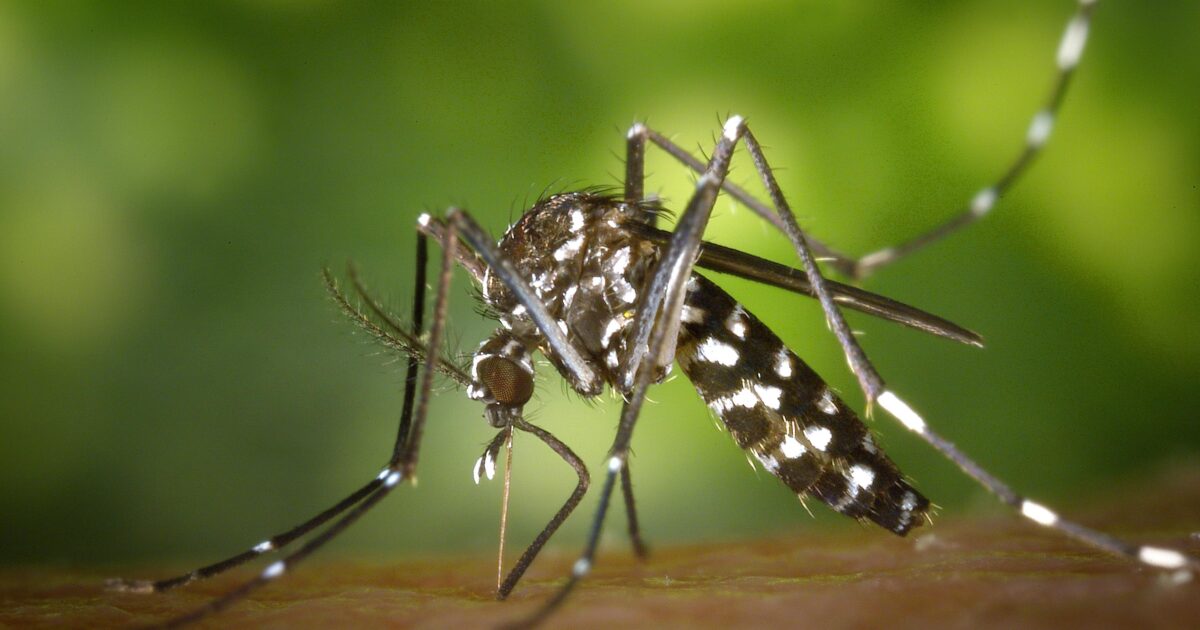Credit: Keith Hayes
Four Massachusetts towns—Webster, Oxford, Sutton, and Douglas—have imposed a voluntary evening lockdown following the confirmation of a human case of Eastern Equine Encephalitis (EEE) in Worcester County, marking the first such case since 2020, Daily Mail reported.
Massachusetts health officials are on high alert as the state grapples with the reemergence of EEE.
Eastern Equine Encephalitis (EEE), also known as Triple E disease, is a rare but serious viral illness transmitted to humans through the bite of an infected mosquito.
According to the official website of the Commonwealth of Massachusetts:
How is the EEE virus spread?
The virus that causes EEE is spread through the bite of an infected mosquito. In Massachusetts, the virus is most often identified in mosquitoes found in and around freshwater, hardwood swamps. More information about different types of mosquitoes that can spread the virus can be found on the MDPH website at www.mass.gov/dph/mosquito.
EEE virus particularly infects birds, often with no evidence of illness in the bird. Mosquitoes become infected when they bite infected birds. Although humans and several other types of mammals, particularly horses and llamas, can become infected, they do not spread disease.
How common is EEE in Massachusetts?
EEE is a very rare disease. Since the virus was first identified in Massachusetts in 1938, just over 115 cases have occurred. The majority of cases typically have been from Bristol, Plymouth, and Norfolk counties. However, in an active year human cases can occur throughout the state.
Outbreaks of EEE usually occur in Massachusetts every 10-20 years. These outbreaks will typically last two to three years. The most recent outbreak of EEE in Massachusetts began in 2019 and included twelve cases with six fatalities. The outbreak continued in 2020 with five cases including one fatality.
What are the symptoms of EEE?
The first symptoms of EEE are fever (often 103º to 106ºF), stiff neck, headache, and lack of energy. These symptoms show up three to ten days after a bite from an infected mosquito. Inflammation and swelling of the brain, called encephalitis, is the most dangerous and frequent serious complication. The disease gets worse quickly and some patients may go into a coma within a week.
What is the treatment for EEE?
There is no treatment for EEE. In Massachusetts, about half of the people identified with EEE died from the infection. People who survive this disease will often be permanently disabled. Few people recover completely.
The outbreak in 2019 resulted in 12 cases and six deaths, and while the numbers dropped in 2020, the threat remains significant, particularly in the towns now designated as “critical-risk” zones.
The Board of Health in Oxford, one of the affected towns, has implemented a curfew, advising residents to remain indoors after 6:00 p.m.
This advisory, set to last until September 30th, will shift to 5:00 p.m. starting October 1st, as colder weather approaches and mosquito activity heightens.
The infected individual in Oxford is currently hospitalized and bravely fighting the virus.
“It is the Board of Health’s responsibility to protect the public health, and we take EEE very seriously, and we are strongly encouraging residents to follow these recommendations due to the severity of EEE and the fact that it is in our community,” a spokesperson for the town of Oxford said in an email to Fox News.
“So far this year in Massachusetts, there has only been one human case of EEE, but throughout the state, mosquitoes have tested positive for EEE.”
“We want to educate our residents about EEE and the seriousness of the illness and make them aware of the risk,” the statement continued.
“However, if they want to use town fields outside these recommendations, they will have to show proof of insurance and sign an indemnification form.”
“Schools are working to reschedule and adjust their sports schedules so practices and games occur before these evening times and on weekends.”
WATCH:
Massachusetts — Here we go again…
Oxford Board of Health Officials to Implement 6pm CURFEWS to Prevent the Spread of (EEE)
“They’re doing what needs to be done to keep people safe..”
• The curfew is to last until the end of September
• The curfew then moves to 5pm… pic.twitter.com/BiJ1sabz9C
— MJTruthUltra (@MJTruthUltra) August 26, 2024
The post Voluntary Lockdown Imposed at Four Massachusetts Towns to Combat Deadly and Incurable Mosquito-Borne Disease appeared first on The Gateway Pundit.











